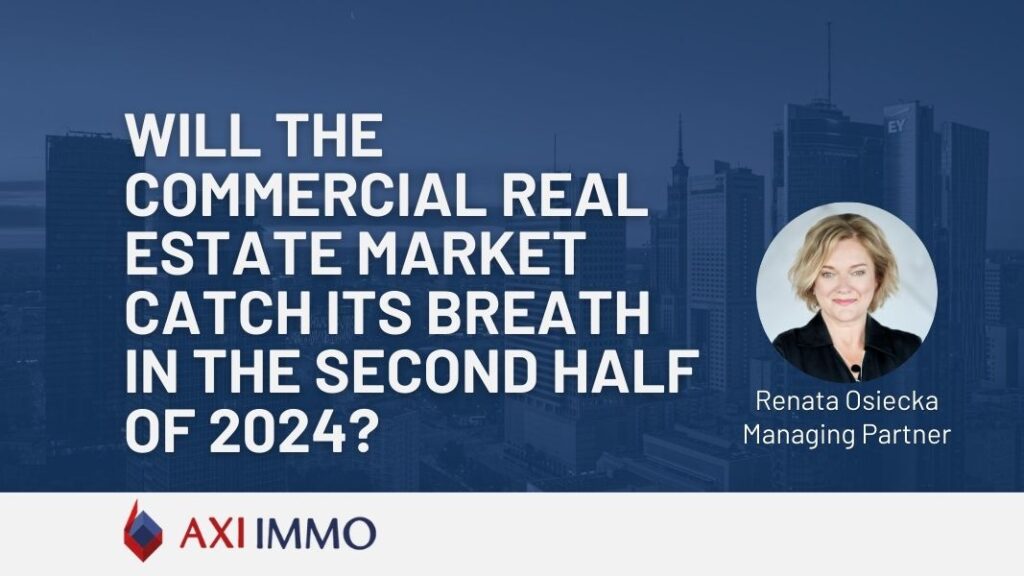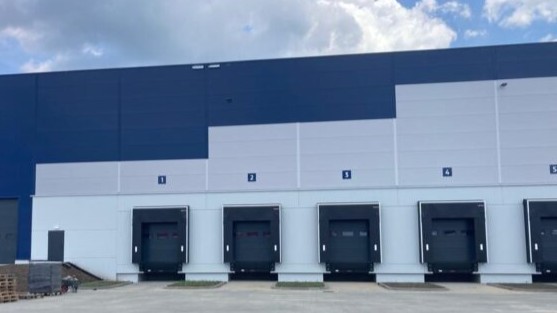Will the commercial real estate market catch its breath in the second half of 2024?
Renata Osiecka, Managing Partner, AXI IMMO, sums up the EXPO Real fair held on October 4th-6th, Munich

The EXPO Real Fairs in Munich is a significant event in the European real estate investment market, attracting entrepreneurs, investors, and public sector representatives annually. As in previous years, the three-day event discussed key trends, opportunities, and challenges facing the commercial real estate sector.
Renata Osiecka, Managing Partner, AXI IMMO, sums up the EXPO Real fair held on October 4th-6th.
“The current condition of the commercial real estate market is, among other factors, an outgrowth of rising interest rates, high financing costs, energy costs, the uncertain political situation, and inflation-linked to everything. Despite the challenging macroeconomic situation, attendance at the fair was very high. One could sense that all real estate players were looking for opportunities for joint investment projects.
During many discussions, issues related to ESG and decarbonization, digitalization, demographics, or the future of urban development were raised. Also introduced were the topics of finding opportunities for development land, local PRS market analyses, and difficulties in preparing property valuations were pointed out. Nevertheless, aspects concerning the investment sector and sources of raising capital or housing remained key. On the demand side, it was pointed out that tenants are diversifying their expansion strategies and taking a wait-and-see position.
Experts pointed out the growing number of non-obvious investments in the real estate sector. There was far more discussion of looking for opportunities and building joint investment initiatives than simple sales transactions. One of the most frequently mentioned ways may be joint ventures, in which capital will not come from a single source.
The real estate sector, despite temporary challenges, is a promising market that is likely to return to growth as early as the second half of 2024. At the same time, market participants note the need for a flexible approach to changing market conditions and adaptation of investment strategies to new circumstances.
A growing number of investors and developers are recognizing the importance of ESG from a moral perspective and as a factor in investment profitability. Companies that implement environmental, social responsibility, and good governance initiatives gain a competitive advantage in the market. At the same time, ESG is becoming an increasingly important criterion for investors, who expect their portfolios to be managed with these values in mind. ESG-compliant investments can bring both financial and social benefits.
The decisions of the European Central Bank on interest rates for the next few years remain particularly important for the future of investment activities. Their stabilization seems crucial for further development of the sector. There is no unanimity among investors and developers as to whether the recovery in the industry will come as early as 2024 or as late as 2025.”
Recent articles
10 July 2025
Trako Team expands to 22,000 sqm its logistics and warehouse centre near Warsaw, Poland, – advised by the AXI IMMO commercial real estate agency
Trako Team Rafał Kopański has expanded its warehouse space at CTPark
23 June 2025
Panattoni Park Warsaw West Błonie near Warsaw, Poland, with a new warehouse for logistics operator
Panattoni Park Warsaw West - key location and modern warehouse spaces
23 June 2025
HSNF renews lease at Prologis Park Poznań I – Beauty sector tenant continues operations in Greater Poland
HSNF continues its logistics operations in Poland in Poznan region
25 May 2025
UrbanBox Park Komorniki – modern small-scale warehouse space for growing businesses, near Poznan, Western Poland
Urbanbox Park Komorniki warehouse complex with modules from 167 sq m. in a strategic location near Poznań.



